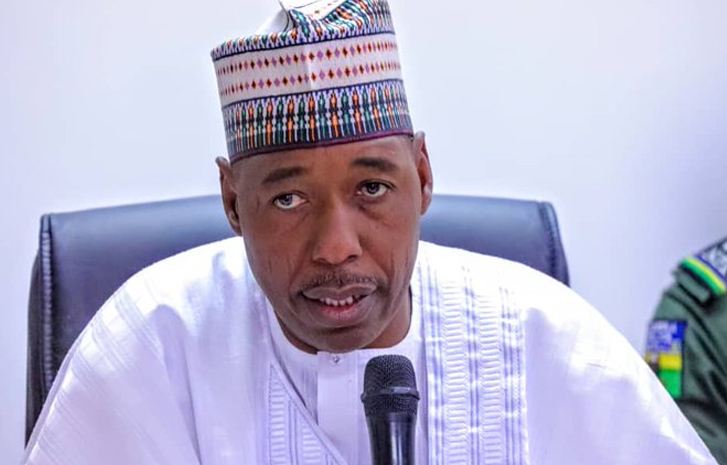- Governor Babagana Zulum of Borno State appealed to residents to refrain from participating in the proposed nationwide protests next month
- Zulum emphasized the importance of engaging in constructive dialogue instead of protests, which he believes may lead to violence and distractions
Governor Babagana Zulum of Borno State has appealed to residents of Borno and Nigerians to refrain from participating in the proposed nationwide protests slated for next month.
During a stakeholders’ town hall meeting held at the Government House in Maiduguri on Wednesday, Zulum emphasized the importance of engaging in constructive dialogue instead of protests, which he believes may lead to violence and distractions. He highlighted the severe impact of the 13-year insurgency conflicts on the state and noted that protests would not be the best approach to maintaining the relative peace currently being enjoyed in Borno.
“Any break of law and order will be a disaster for us. I am appealing to the people, not only of Borno State but all Nigerians, to shun any protests that will bring hardship to Nigerians. Let us engage in positive dialogues. The Federal and state governments are doing everything possible to reduce the hardships people face in Nigeria,” Zulum said.
He stated, “The Government of Borno State and its people have been experiencing insurgency for the past 13 years, but now peace has gradually returned to Borno State, and we must maintain this peace.”
Zulum expressed satisfaction that many stakeholders had committed not to join the protests and assured that the government of Borno State would follow up to ensure these commitments are upheld.
The town hall meeting was attended by heads of security agencies, traditional rulers, the Network of Civil Society Organizations, Young Peace Advocates, the Nigerian Union of Journalists, and the Nigerian Bar Association. Other attendees included representatives from the Civilian Joint Task Force, the Christian Association of Nigeria, Jammatul Nasir Islam, student and youth groups, women’s groups, traders, people living with disabilities, and the Nigeria Labour Congress.
